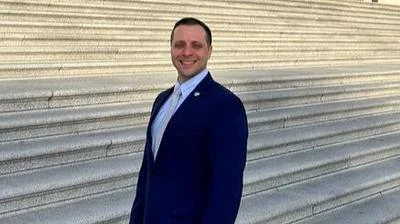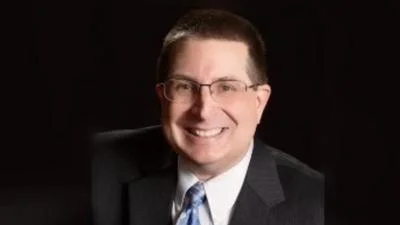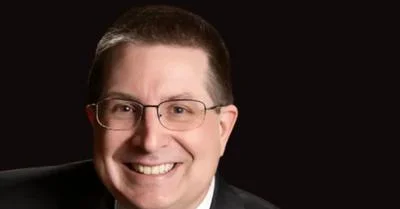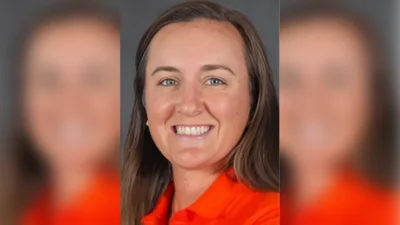Sherrod Brown | Official U.S. Senate headshot
Sherrod Brown | Official U.S. Senate headshot
WASHINGTON, D.C. – On July 24, U.S. Senator Sherrod Brown (D-OH) and U.S. Representative Greg Casar (D-TX-35) led a bicameral group of colleagues calling on the Occupational Safety and Health Administration (OSHA) to implement a federal workplace heat standard as quickly as possible. At a time of dangerously high temperatures, Brown is pushing OSHA to implement heat standards based off of Brown’s Asuncion Valdivia Heat Illness and Fatality Prevention Act which would create a universal heat standard requirement for workers who are threatened by hot working conditions. Brown reintroduced the legislation in 2021.
“All workers need a safe work environment. Ohioans shouldn’t have to risk their health in extreme heat to provide for their families,” said Brown. “OSHA must create national standards and protections to keep workers safe on the job, as the risks of heat stress increase.”
The letter urges Acting U.S. Department of Labor Secretary Julie Su and Assistant Secretary for Occupational Safety and Health Douglas L. Parker to establish an enforceable federal standard to ensure workers and employers can recognize and respond to the signs of heat stress. The standard should require employers to provide the following:
• adequate hydration;
• rest breaks;
• areas for rest breaks that are shaded (in the case of outdoor work) or air-conditioned (in the case of indoor work);
• medical services and training to address signs and symptoms of heat-related illness; and
• a plan for acclimatization to high-heat work conditions.
In addition to Brown and Cesar, over 110 members of the House and Senate signed the letter including U.S. Senators Catherine Cortez Masto (D-NV), Alex Padilla (D-CA), Bernard Sanders (I-VT), Richard Blumenthal (D-CT), Cory Booker (D-NJ), Kirsten Gillibrand (D-NY), Mazie Hirono (D-HI), Ben Ray Luján (D-NM), Ed Markey (D-MA), Bob Menendez (D-NJ), Jeff Merkley (D-OR), Jack Reed (D-RI), Chris Van Hollen (D-MD), Elizabeth Warren (D-MA), Sheldon Whitehouse (D-RI), Ron Wyden (D-OR).
A copy of the letter can be found HERE or below.
Dear Acting Secretary Su and Assistant Secretary Parker:
Protection from extreme heat is a matter of life and death for many workers and their families across the United States. We write to you today to encourage the fastest possible implementation of an Occupational Safety and Health Administration (OSHA) workplace heat standard to ensure that millions of people can go to work with greater confidence that they will return to their families alive and uninjured.
This year has already brought record high temperatures that have led to preventable deaths in the workplace. In Dallas, Texas, a USPS employee of over 40 years died while on his route in 115- degree heat. In Harrison County, Texas, a 35-year-old lineman working to restore power died, likely from heat exhaustion. We know extreme weather events such as heat waves are becoming more frequent and more dangerous due to climate change. Urgent action is needed to prevent more deaths.
This summer will be particularly dangerous for both public and private sector American workers exposed to heat. Examining Bureau of Labor Statistics data and other relevant research, Public Citizen estimates that occupational heat stress causes on average 700 deaths and 170,000 illnesses and injuries annually in the U.S. This year is expected to be the hottest on record, demonstrated by the hottest days on record on Earth in the first week of July, following the hottest ever month of June. Heat waves are associated with increases in death rates, driven not only by deaths directly caused by extreme heat but also by increases in deaths from heart attacks, respiratory illnesses, and cerebrovascular diseases. Heat waves are also associated with increased hospital admissions for cardiovascular, kidney, and respiratory disorders. As you know, many workers whose jobs require prolonged exposure to extreme heat are not afforded paid time off or sick days. Thus, any health complications caused by heat exposure can lead to missed work, missed wages, and financial instability for families.
We applaud the Biden Administration’s efforts to defend workers’ rights and create good, high paying jobs. We were pleased to see that, following the 2021 letters sent to former Secretary Marty Walsh by Members of Congress, OSHA has made progress on the development of a heat standard by issuing an advanced notice of proposed rulemaking, and, more recently, initiating a Small Business Regulatory Enforcement Fairness Act Panel Review, two of the steps taken ahead of publishing a proposed rule. The crisis demands immediate action if we are to accomplish our shared goals of saving lives and prioritizing worker safety and dignity.
As you are aware, Texas Governor Greg Abbott recently signed House Bill 2127 into law. This bill repeals local laws that protect the interests of everyday people in sectors such as labor, agriculture, natural resources, and finance. When this bill takes effect on September 1, 2023, local protections against extreme heat, such as the Austin and Dallas ordinances that require water breaks for construction workers, will be nullified. San Antonio’s recent efforts to adopt a similar ordinance to protect construction workers would also be banned. Texas is the leading state for construction worker fatalities, and a University of Texas study found that 39% of Texas construction workers do not receive rest breaks on the job. In the past month, more than 55 million people were under heat alerts due to a heat wave spanning from Arizona to the Florida coast. If a strong federal heat standard that includes routine breaks for rest, shade, and hydration is enacted this year, it would save lives across the country, while preventing any other statewide attempts to limit local heat protections.
While Texas state legislators are working to dismantle worker protections, some states such as California, Minnesota, Oregon, and Washington have taken a proactive approach to protecting workers from extreme heat by implementing statewide heat rules. For example, at temperatures above 80 degrees, California requires employers to allow workers to take preventative cooldown rest in a shaded area at any time they feel at risk of overheating. In Minnesota, indoor workers may not be required to perform heavy work when the indoor heat index is too high. We urge that, when drafting the heat standard, OSHA incorporates the best practices from these state rules by using them as the baseline for the federal standard.
We additionally request that you model the standard after the provisions in the Asunción Valdivia Heat Illness and Fatalities Prevention Act. This bill directs OSHA to establish an enforceable federal standard to ensure workers and employers can recognize and respond to the signs of heat stress. This standard should require employers to provide the following:
1. adequate hydration;
2. rest breaks;
3. areas for rest breaks that are shaded (in the case of outdoor work) or air-conditioned (in the case of indoor work);
4. medical services and training to address signs and symptoms of heat-related illness; and
5. a plan for acclimatization to high-heat work conditions.
Given the dire threat to the lives of workers exposed to extreme heat, we encourage you to mobilize all of the resources of the Department of Labor and the Biden Administration that are necessary for implementing this standard as soon as possible.
Thank you for your ongoing commitment to safe workplaces for all.
Sincerely,
Original source can be found here.






 Alerts Sign-up
Alerts Sign-up